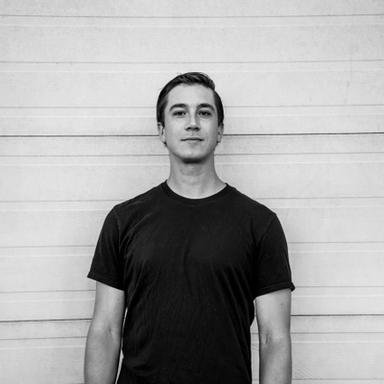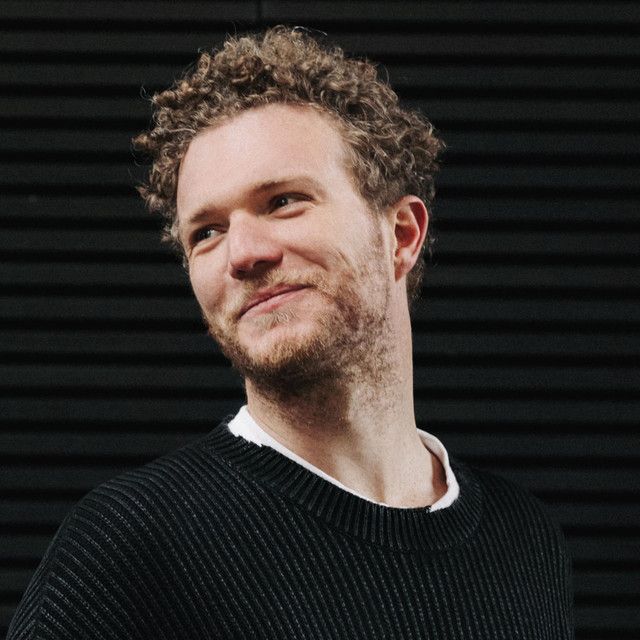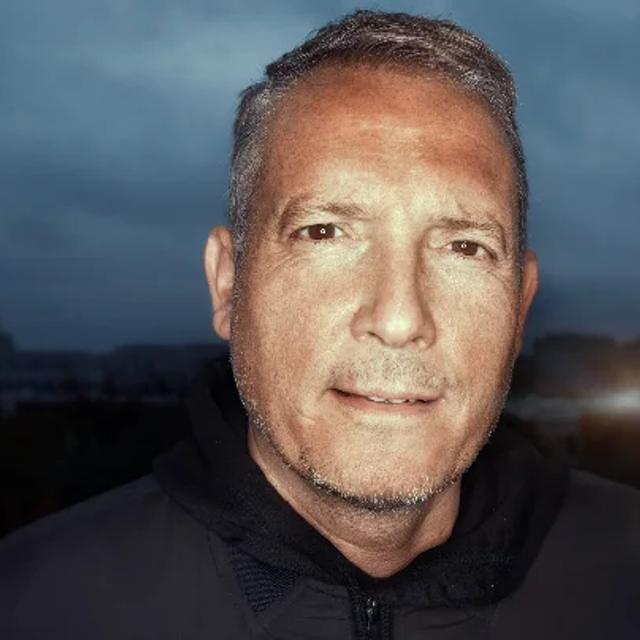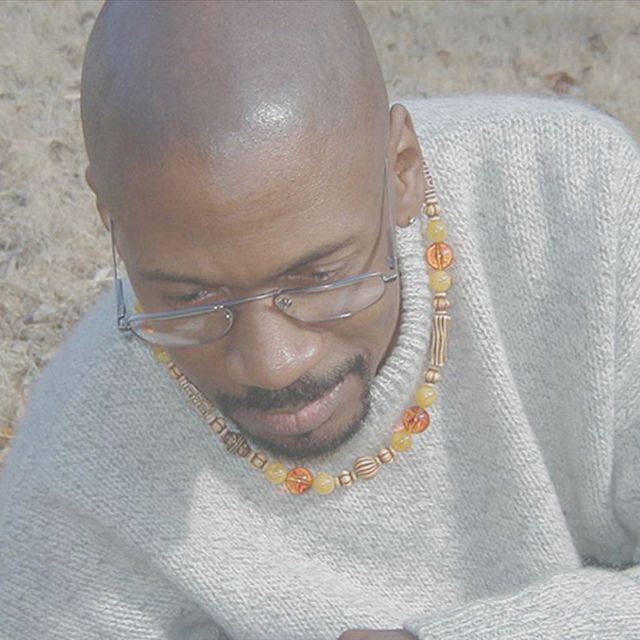Artist Spotlight
“Live wild. Write honest," four words born from a lifetime of experience, a heart full of purpose, and a spirit full of ambition. You certainly could call Jeffrey Hartford, bka ATTLAS, a music producer, but that label barely begins to scratch the surface of his depth not only as an artist but as a human. In an industry largely dependent on marketability and capturing the latest trends, Hartford has relied on his heart to lead his writing. The result? A library of rich organic sounds, breathtaking cinematic textures, and soul-inspiring melodies. But one is not simply born into the role of "artist." A person is not haphazardly thrust into the part of "composer." Steps are taken, experiences are shared, and decisions are made. At the end of it all, a story is written and lived. “The first time I started playing music is when my family moved to Michigan when I was six years old,” Jeff begins. “It was an old house with an unfinished basement, and the previous occupants had a 120-year-old piano in the basement. My parents aren’t musicians, they aren’t musical, but it was just down there near my Legos and hockey stuff, that’s where all my fun stuff went. So the piano was just another really fun thing to figure out. I’d toy around and figure out melodies on the piano that matched what was happening on the radio.” As the years went on, it became increasingly apparent that the 120-year-old piano was more than another toy. “When we moved to Ontario after Michigan, my parents thought, ‘You know what, Jeff’s liking the piano, why don’t we bring it with us.’ It wouldn’t fit in the basement of our new place in Ontario, so it had to take a more prominent place in the living room. Because it’s such a big chunky piece of furniture, they wanted to make sure, ‘Jeff are you still going to play it? Do you want to take lessons?’” Jeff jumped at the opportunity and dove head first into the next level of piano exploration. Piano lessons were soon joined by guitar, trumpet, and others as music tastes evolved to include sounds of pop punk, classic rock, blues, jazz, classical, and folk. The eclectic nature of these sounds went hand in hand with the diverse nature of Hartford’s other interests. “I was very very busy, and I still am, in a lot of different areas of life. I was always trying to be top of the class, played a ton of sports… everything I did was full throttle. Of course music too.” Despite consistent interests, the groups to exercise those interests with were anything but. “My family moved around a lot growing up. Every two to three years we were in a new place. So there’s not a lot of consistency with your friend group. It could be a bit socially isolating and you need some kind of consistent thread through your story. Mine was my hobbies. A lot of books, a lot of imagination, and music was the one.” While this kind of inconsistent connection would be tough for anyone in their formative years, the dive into art, story, and music that followed became the foundation of Hartford’s artistic direction. The ATTLAS sound is more than a chugging bass line, intermittent synth stabs, and a cheeky vocal hook. Instead, time, patience, purpose, and emotion thoughtfully intertwine in a rich tapestry of both organic and synthesized compositional themes. Melodies dance in delicate balance with harmonies and counter-melodies telling stories and sharing experiences with room for personal connection imbued by every listener. Listening to a singular ATTLAS track would provide no more than a glimpse into the depth of experience the library holds. Rather, one should listen to an entire album or a full mix to understand the journey lies within the compositional intricacies. Projects form from sonic transpositions of a vast spectrum of inspiration ranging from existential turmoil to profound geographic experiences (thus the name ATTLAS). It is a musical exploration of the human condition. “You can write character, you can use an instrument as narrative development… There’s a lot you can achieve with wordlessness. There’s very little room for interpretation when a track has a lyric like ‘Shake it off,’” he shares. “That’s pretty obviously about shaking something off. But a big piece like a Wagner piece or a Beethoven, or I was a big Chopin guy because I was a piano player first, you can convey a lot of emotion but that emotion can be interpreted a lot different based on the emotional context of the listener. What’s sad to one person might mean something very personal. But what’s sad to somebody else might be weather inspired and I think I appreciated being able to take my own story and understand it through all this wordless music. It was just beautiful and I wanted to try and give back to the music that meant so much to me and got me through a lot of isolation.” This deep appreciation for the challenge of composition led Jeff to follow that same course of study at university, later taking on internships with commercial studios and professional composers. Through these opportunities, he honed his technical aptitude for studio hardware and later fostered his love of dance music. “The first time I was exposed to electronic music knowingly delving into it as a genre was Boards of Canada's first album. For a long time, electronic music for me was just Warp Records, Ninja Tune, it was less the dance side and more electronic music,” Jeff remembers. “Then, after a breakup, I did a whole backpacking thing and you go to places in Berlin that only open at 4 am and I’d never even had the guts to dance with a girl let alone. Not only was the music awesome but you can actually dance by yourself. You are someone before and after you come to that realization.” While Jeff found himself working in LA after university, waves were crashing in the realm of dance music that could not be ignored. “I knew the process to work up in LA, and I knew what the composer route was gonna be. But that was the time when deadmau5 was sort of setting a new standard on not just the writing but the sonic fidelity of what he was pulling off. And I said ya' know ... If they sign my records, then I’ll switch [from commercial composition], I’ll really go after the dance side of electronic music. Fortunately, deadmau5 and his team did sign me and he was the reason why I was excited to switch to the dance side,” Hartford recalls. Jeff was soon opening on deadmau5 tours, co-producing records, and developed what is to this day a meaningful friendship. But Jeff wanted to explore the ATTLAS experience even deeper. “Even if you get fortunate enough to find your voice, what are you going to say with that voice… I know what I care about, I know what I love, I know what motivates the writing, but is that coming across properly,” he ponders. That determination to find the truest conveyance of ATTLAS has led Hartford to explore the deepest facets of himself while writing albums. But will those explorations—self-reflections—be accepted in an industry that demands digestibility and predictability? That is a question that, like music, has many shades of gray. “That’s been the challenge of most musicians that I’ve spoken to personally. Finding the balance of doing something that truly feels like your own while retaining some semblance of forward momentum career-wise when tastes are a lot more middle of the road,” Jeff examines. “You talk about a Michelin star restaurant and they’ll struggle on their margins and you’ll get a Subway that has a million restaurants. What is a successful restaurant? Is it how much money you make, how interesting it is, is it being critically acclaimed but commercially under-appreciated? I think that’s a bigger question, but there’s an evolving version of success for anyone in a creative pursuit.” Indeed Hartford brings to light an undeniable point. When speaking to a person like Jeff Hartford—a lifetime disciple and devotee to music and the wonder of all its abstract power—it becomes apparent that there’s so much more than the play counts, nominations, and metrics we’ve grown used to monitoring. ATTLAS has scored millions of plays and has multiple award nominations, but Jeff still searches for ways to open doors to new worlds and feelings through mode and melody. Will he ever be able to fully capture the feeling of immense calm required to control one's autonomic system when plunged into waters barely above freezing? Will he ever be able to communicate the rush of fear that follows a deafening thunderclap? Is music capable of transposing the tumultuous duality of feeling pride in how much one has grown while simultaneously struggling to reconcile the relationship with past versions of self? The pursuit is one with no guarantee of closure or solace, recognition, or reward. But it is one Hartford will choose to traverse time and time again because his guiding light is, and always has been, the music.










